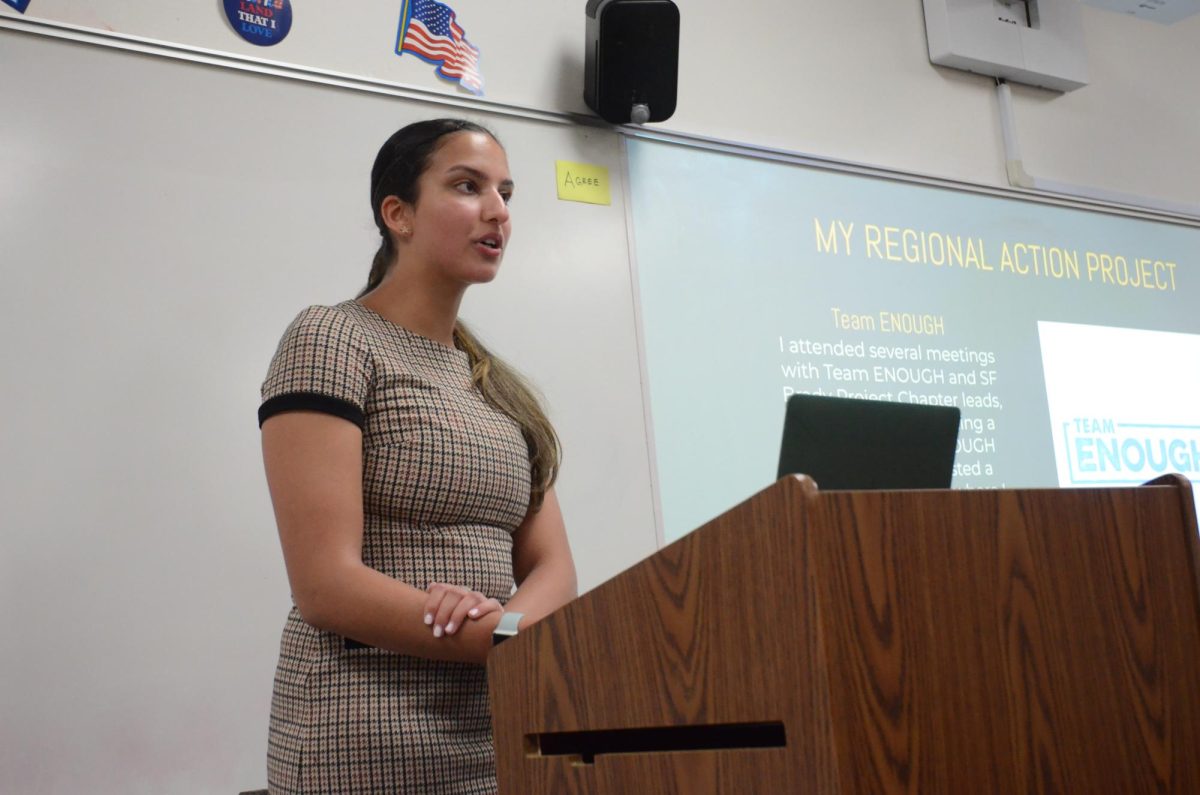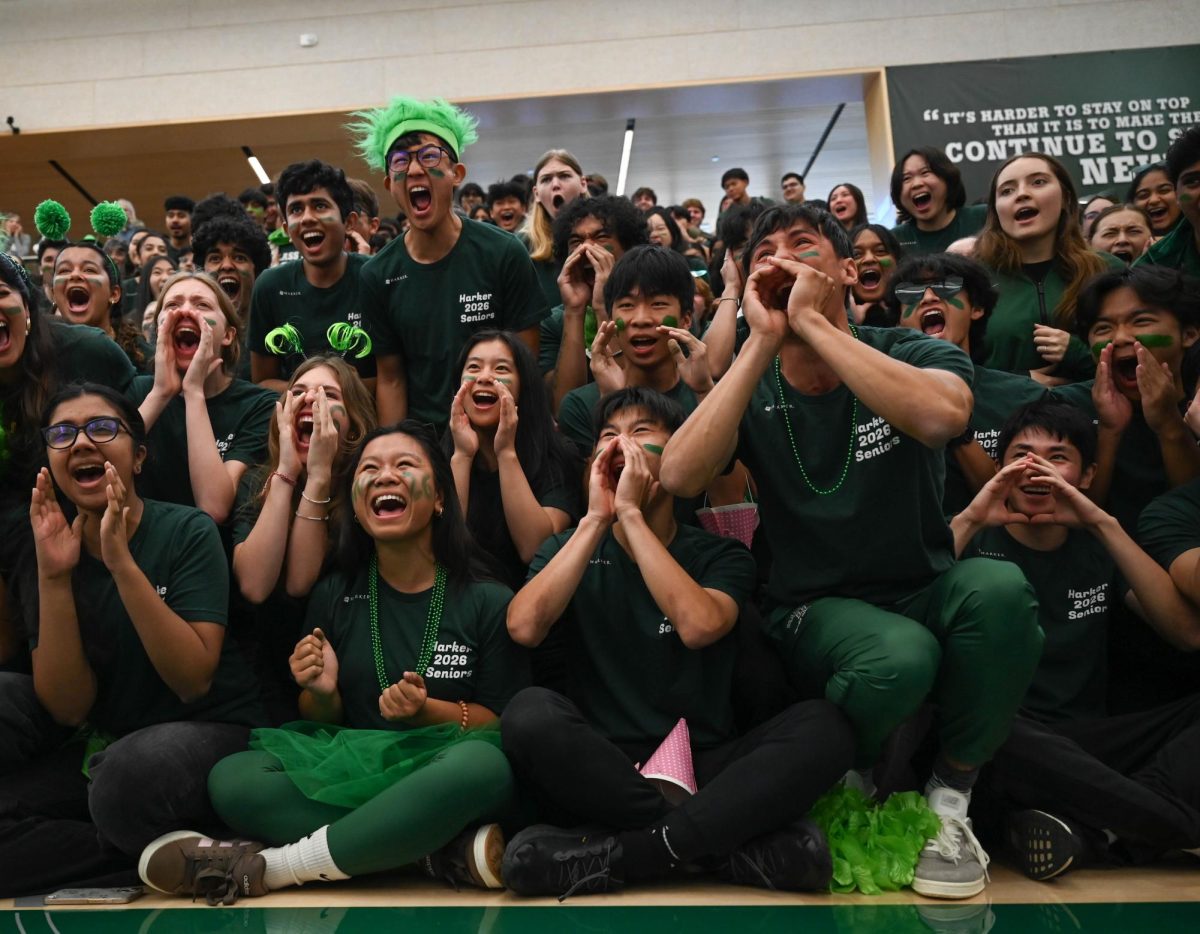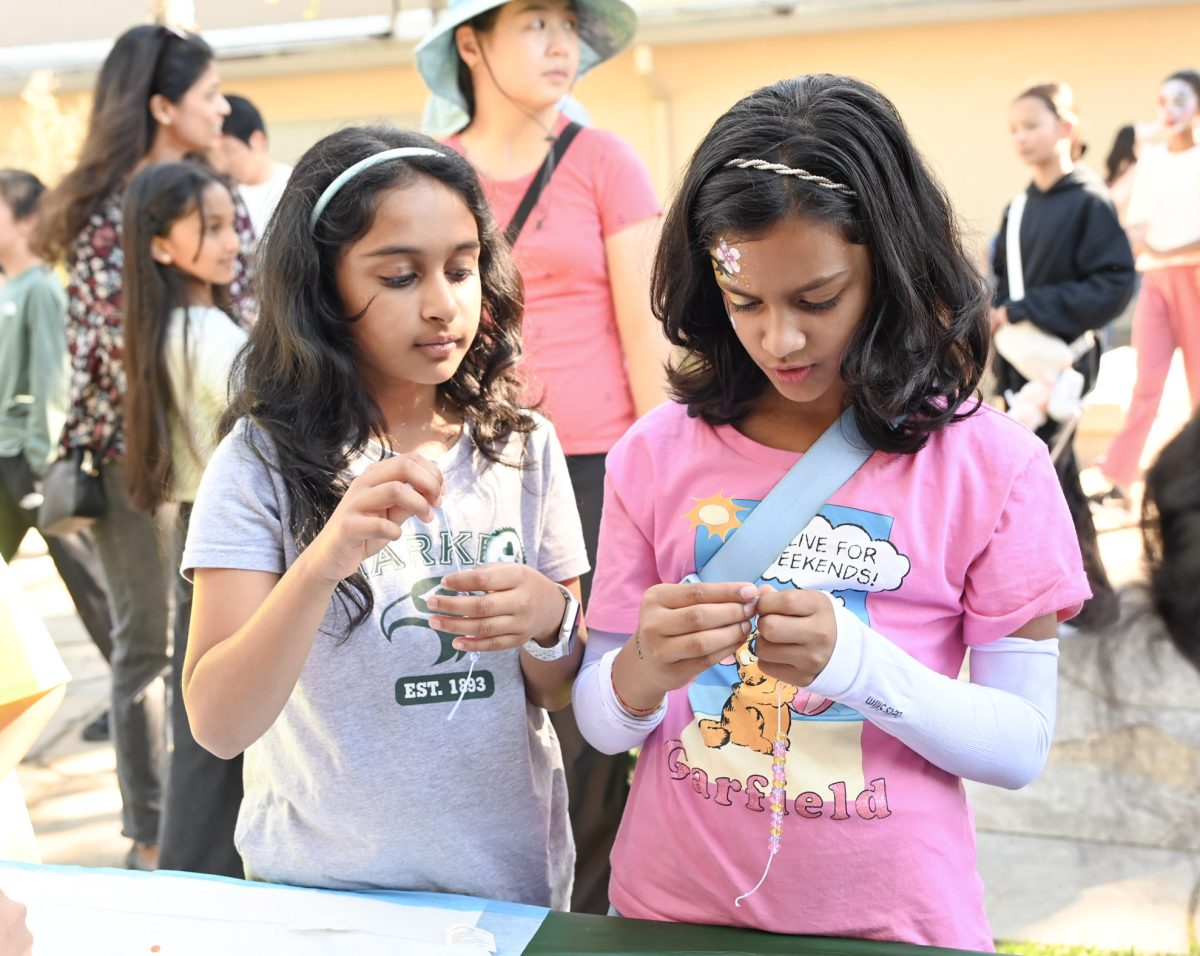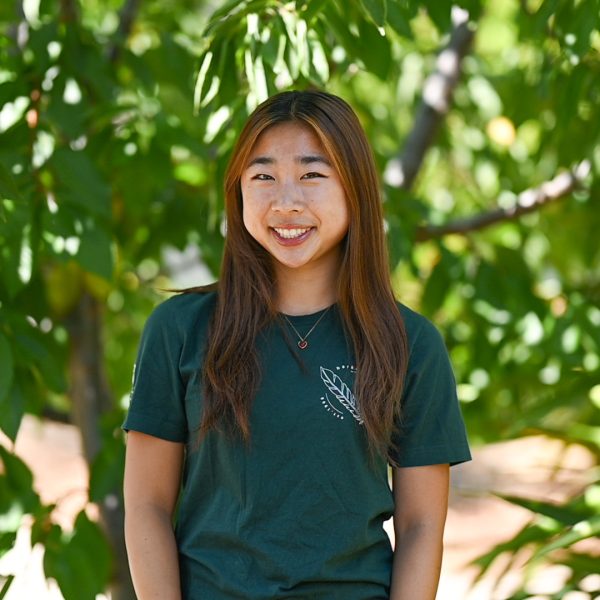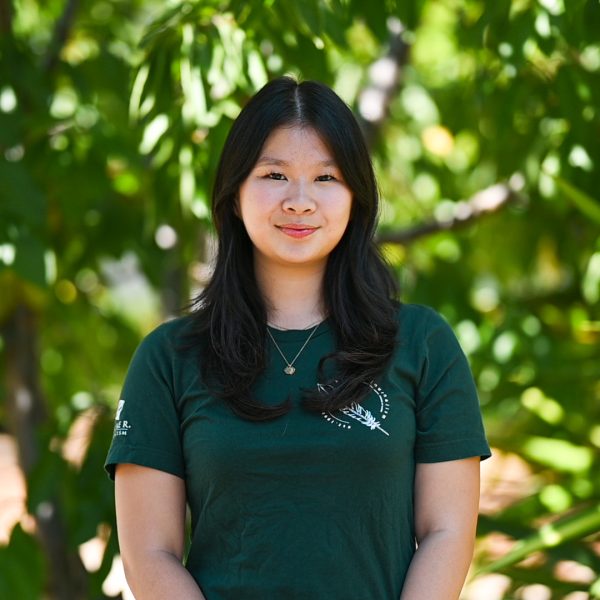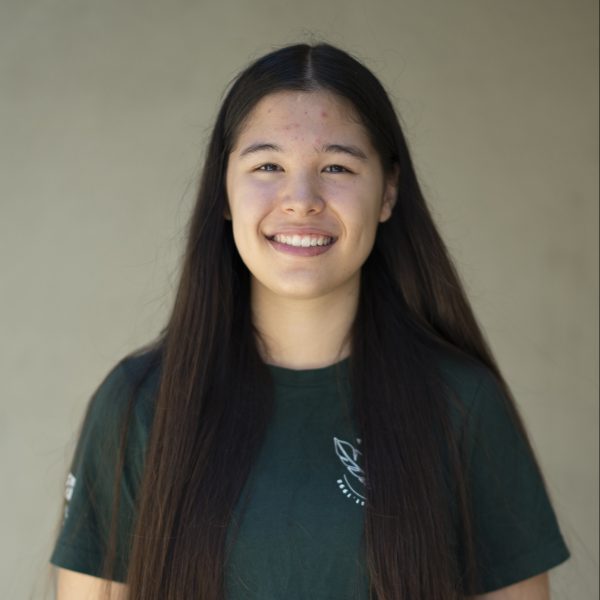Civics and Regional Politics students Jason Shim (11), Sahngwie Yim (11), Yasmin Sudarsanam (11) and Anoushka Chakravarty (10) presented their regional action projects in a community panel on Wednesday.
As a class assignment, students were tasked with researching and participating in local initiatives they were passionate about, combining investigative writing and community service. After a semester of work, they held an in class panel discussion with alumni, guests and faculty members.
Yasmin opened the panel with her project which aims to reduce gun violence across the country. She discussed her efforts to raise awareness about California’s Red Flag Law, which allows anyone to file for a gun violence restraining order. Yasmin established a Bay Area branch of the Brady Project and wrote newsletters to spread life-saving information like the Red Flag Law. As she closed her presentation, she encouraged audience members to stand with her in preventing gun violence.
“If you feel as passionately as I do about solving the issue of gun violence in the Bay Area, I encourage you to educate yourself through researching current legislation, contacting your legislators to demand stricter background checks and other control laws, or joining an organization like the Brady Project,” Yasmin said.
Inspired by Simar Bajaj’s (‘20) speech about healthcare disparities during last year’s Research Symposium, Sahngwie spoke about battling the lack of healthcare support for certain groups. Sahngwie helped transport debilitated patients at a Veterans Affairs medical center, organized a blood drive with Stanford Blood Center in collaboration with Harker Medical Club and wrote an argumentative essay on the healthcare staffing crisis.
Anoushka’s project focused on developing a comprehensive eating disorder curriculum for schools. She started by researching the existing curriculum for public schools in order to identify shortcomings. She then addressed these concerns during a speech at the Board of Education meeting for the Fremont Unified School District. Anoushka intends to communicate with the Harker administration to improve Harker’s curriculum on eating disorders.
“I want the administrative people to take away that even though the curriculum may seem solid, there are multiple factors to consider,” Anoushka said. “They could think about what are other things they can add to make it more comprehensive, and in general, how we can improve Harker students’ lives.”
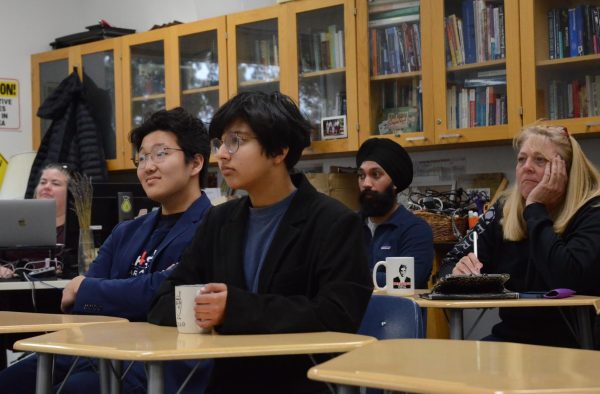
Jason wrapped up the panel with a discussion on his attempt at understanding and preventing anti-Asian hate in the Bay Area. He began by recalling a conversation with Santa Clara’s vice mayor, Kevin Park, in which Park referred to himself as an “American-Korean” rather than the traditional phrase of Korean-American. Park’s emphasis on his American values, which Jason defined as the willingness to engage in local government, resonated with Jason. He joined former Mountain View Mayor Margaret Abe-Kog’s campaign for Santa Clara County District Five Supervisor as an intern and gained experience canvassing, tabling and researching policies.
Upper school history and social studies teacher Carol Green, who teaches the Civics and Regional Politics class, introduced this project to the students at the beginning of the semester. “One of the biggest things about being part of a community is civic engagement,” Green said. “It’s the idea of participatory government, and the government levels that impact us most are our local and state governments. This course allows students to learn about how they can engage in their own government as well as how their government serves them. It gives an opportunity for empowering future citizens.”
The presenters all addressed challenges they faced as high school students endeavoring to impact widespread issues. They noted difficulties in finding opportunities due to their lack of experience as compared to seasoned medical or political professionals. Audience member and public health graduate student Nirban Singh (‘18) advised the students to participate in as many opportunities as possible.
“The biggest thing you can do is learn,” Singh said. “From my career, I can say that those that are most successful actually understand how the system works. You can’t really help anyone to your max potential unless you truly understand how the system works and how it fails to serve underserved populations.”




![LALC Vice President of External Affairs Raeanne Li (11) explains the International Phonetic Alphabet to attendees. "We decided to have more fun topics this year instead of just talking about the same things every year so our older members can also [enjoy],” Raeanne said.](https://harkeraquila.com/wp-content/uploads/2025/10/DSC_4627-1200x795.jpg)


















![“[Building nerf blasters] became this outlet of creativity for me that hasn't been matched by anything else. The process [of] making a build complete to your desire is such a painstakingly difficult process, but I've had to learn from [the skills needed from] soldering to proper painting. There's so many different options for everything, if you think about it, it exists. The best part is [that] if it doesn't exist, you can build it yourself," Ishaan Parate said.](https://harkeraquila.com/wp-content/uploads/2022/08/DSC_8149-900x604.jpg)




![“When I came into high school, I was ready to be a follower. But DECA was a game changer for me. It helped me overcome my fear of public speaking, and it's played such a major role in who I've become today. To be able to successfully lead a chapter of 150 students, an officer team and be one of the upperclassmen I once really admired is something I'm [really] proud of,” Anvitha Tummala ('21) said.](https://harkeraquila.com/wp-content/uploads/2021/07/Screen-Shot-2021-07-25-at-9.50.05-AM-900x594.png)







![“I think getting up in the morning and having a sense of purpose [is exciting]. I think without a certain amount of drive, life is kind of obsolete and mundane, and I think having that every single day is what makes each day unique and kind of makes life exciting,” Neymika Jain (12) said.](https://harkeraquila.com/wp-content/uploads/2017/06/Screen-Shot-2017-06-03-at-4.54.16-PM.png)








![“My slogan is ‘slow feet, don’t eat, and I’m hungry.’ You need to run fast to get where you are–you aren't going to get those championships if you aren't fast,” Angel Cervantes (12) said. “I want to do well in school on my tests and in track and win championships for my team. I live by that, [and] I can do that anywhere: in the classroom or on the field.”](https://harkeraquila.com/wp-content/uploads/2018/06/DSC5146-900x601.jpg)
![“[Volleyball has] taught me how to fall correctly, and another thing it taught is that you don’t have to be the best at something to be good at it. If you just hit the ball in a smart way, then it still scores points and you’re good at it. You could be a background player and still make a much bigger impact on the team than you would think,” Anya Gert (’20) said.](https://harkeraquila.com/wp-content/uploads/2020/06/AnnaGert_JinTuan_HoHPhotoEdited-600x900.jpeg)

![“I'm not nearly there yet, but [my confidence has] definitely been getting better since I was pretty shy and timid coming into Harker my freshman year. I know that there's a lot of people that are really confident in what they do, and I really admire them. Everyone's so driven and that has really pushed me to kind of try to find my own place in high school and be more confident,” Alyssa Huang (’20) said.](https://harkeraquila.com/wp-content/uploads/2020/06/AlyssaHuang_EmilyChen_HoHPhoto-900x749.jpeg)



